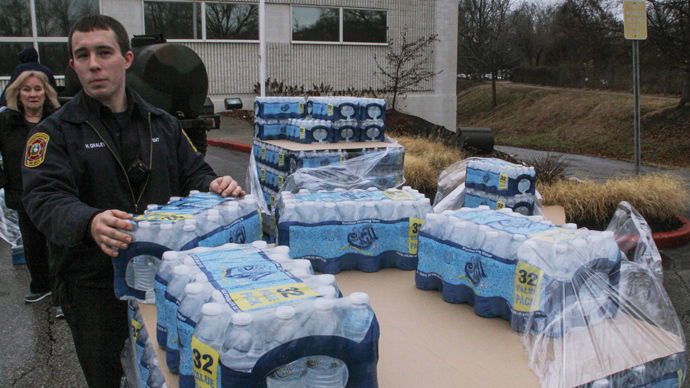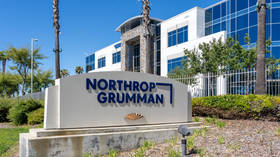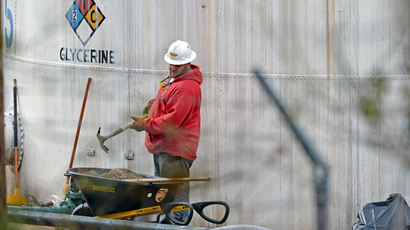West Virginia official says residents are breathing cancer-causing agent after chemical spill

A West Virginia state official told legislators on Wednesday that he “can guarantee” some residents are breathing in a cancer-causing substance due to the chemical spill that occurred earlier in January.
In a recent meeting with a state legislative committee on water resources, Scott Simonton of the West Virginia Environmental Quality Board said that his tests have detected formaldehyde in water samples contaminated by the recent Elk River chemical spill.
"I can guarantee that citizens in this valley are, at least in some instances, breathing formaldehyde," Simonton said, according to the Associated Press. "They're taking a hot shower. This stuff is breaking down into formaldehyde in the shower or in the water system, and they're inhaling it."
As Simonton noted, the chemical mixture that leaked into the Kanawha Valley’s water supply – a combination of seven substances used to wash coal that’s called “Crude MCHM” – is partly composed of methanol. When this chemical breaks down, it turns into formaldehyde, a carcinogen linked to diseases such as respiratory cancer.
"It's frightening, it really is frightening," the Charleston Gazette quoted Simonton telling state lawmakers. "What we know scares us, and we know there's a lot more we don't know."
The news also comes just a few days after it was revealed that a second, previously undisclosed chemical known as PPH also leaked into the Kanawha Valley’s water supply.
Despite the fact that state officials lifted local “do not use” orders on January 18, Simonton added that the potential presence of other chemicals means it’s too soon to declare the water supply safe.
"We know that (crude MCHM) turns into other things, and these other things are bad," Simonton told reporters Wednesday. "And we haven't been looking for those other things. So we can't say the water is safe yet. We just absolutely cannot."
As RT reported previously, the safety standards set by the Centers for Disease Control are based off of a pure form of MCHM, not the multi-chemical cocktail that is Crude MCHM. As a result, the tests declaring West Virginia’s water safe may not properly account for the other chemicals in the mixture.
In the week after the “do not use” orders were lifted, hospital admissions related to the chemical spill doubled, as did calls to West Virginia’s Poison Control Center.
About 300,000 West Virginians across nine counties were affected by the January 9 spill, which dumped about 10,000 gallons of chemicals into the Elk River. The company responsible for maintaining the storage tanks, Freedom Industries, has been hit with at least 20 lawsuits related to the spill and has filed for Chapter 11 bankruptcy.














